Results
-
 £29.95
£29.95Cafe 1719 - Jonathan Bates
DURATION: 2'30". DIFFICULTY: 1st Section+. 'Caf 1719' was composed for the Wantage Silver Band as part of their entertainment contest sets based on the music of Johann Sebastian Bach in 2019. This particular short, jazz-inspired work is composed in tribute to the great French Pianist Jacques Loussier (1934-2019) who received global acclaim for his jazz interpretations of Bach's music, along with many other classical composers. Despite being born in the same year and living in the same country, Bach and Handel never actually met, but what if they had? Cafe 1917 acts as a musical meeting point - in a fictional Jazz Cafe by the Rhine, with the tenor horn section performing a 'Loussier-esque' version of Bach's 'Prelude No.2 in C Minor' whilst on the other side of the cafe, the trombone section follow suit with their take on Handel's 'Bourree from Music for the Royal Fireworks'. Eventually the two meet, share ideas and incorporate them into each other's melodies. Amongst the 2 main featured works by Bach and Handel, the tutti interludes are constructed on music from Bach's 'Toccata and Fugue in D Minor'. .
In Stock: Estimated dispatch 1-3 working days
-
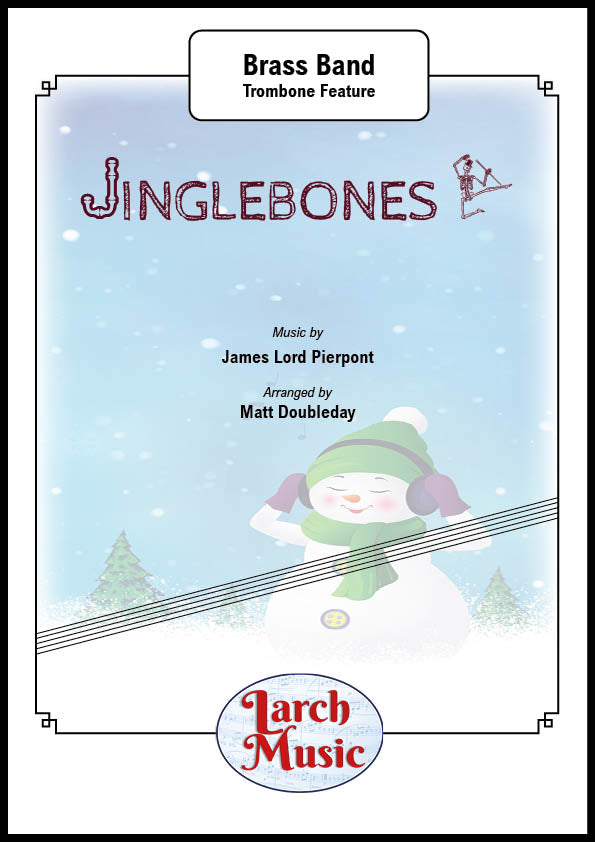 £30.00
£30.00Jinglebones - Brass Band - LM287
COMPOSER: James Lord PierpontARRANGER: Matt DoubledayA delightful addition to the trombone repertoire for Christmas time. Trombones and Jingle Bells - What could be better?Featuring the three trombones in the new adaptation of the classic Jingle Bells.Watch out for William Tell along the way in this light and swingy arrangement.
In Stock: Estimated dispatch 3-5 working days
-
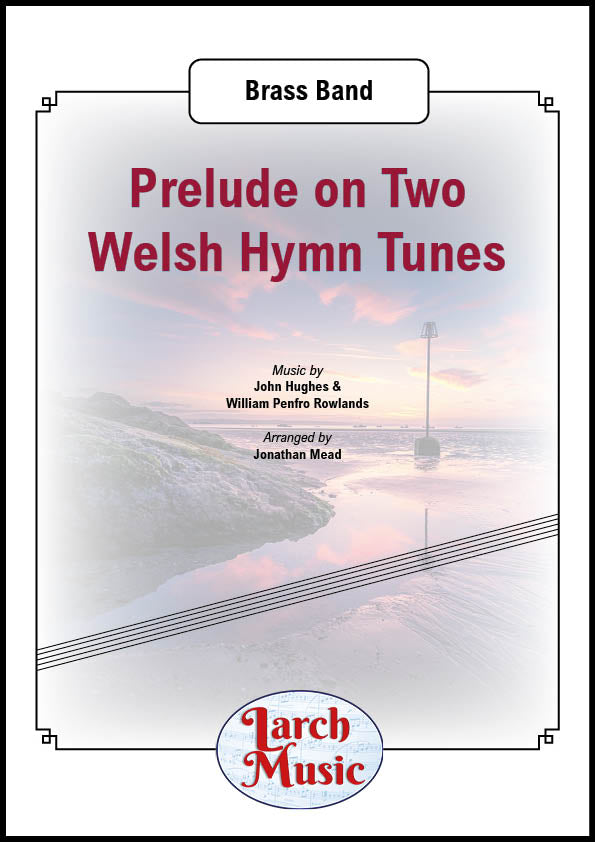 £35.00
£35.00Prelude on Two Welsh Hymn Tunes - Brass Band - LM585
COMPOSER: John Hughes & William Penfro RowlandsARRANGER: Jonathan MeadTwo Welsh hymn tunes, Cwm Rhondda & Blaenwern, delightfully bonded together in this prelude.Running semiquavers on cornets open into the tune Cwm Rhondda on lower brass.You want a jazz style? then that's what you get with the tune in sections accompanied with finger clicks. Don't forget to stand as well.Ending quietly to take you into Blaenwern with solos for cornet delicately accompanied by the band.A fabulous ending with those running semiquavers returning making way for a crescendo finish.Suitable for second to championship bands - Duration 6'.15" (Approx.)
In Stock: Estimated dispatch 3-5 working days
-
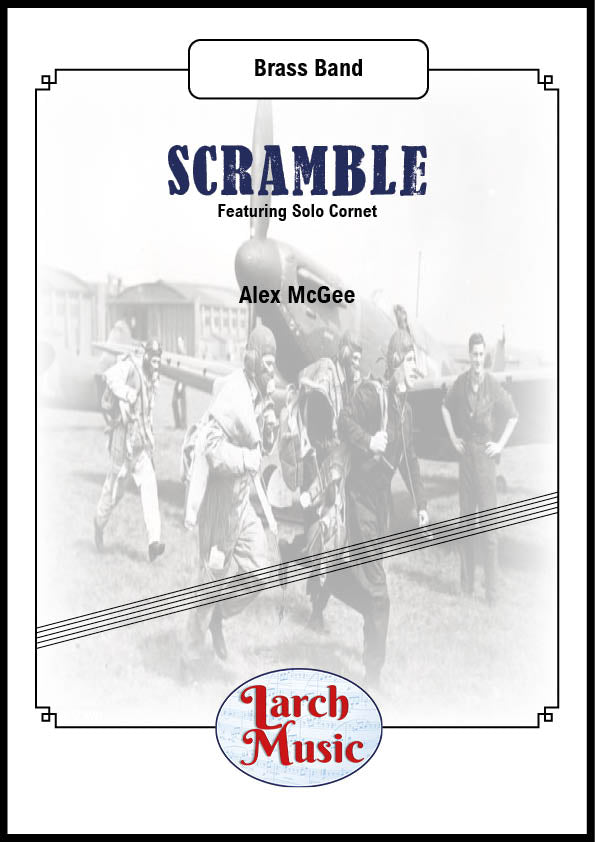 £25.00
£25.00Scramble (Alex McGee) - Cornet & Brass Band Full Score and Parts - LM424
COMPOSER: Alex McGeeScramble was composed for Kidlington Concert Brassto be performed as part of their 2022 series of events.A solo cornet feature, the principal cornet needs his orher wits about them as they take to the skies,musically speaking in their Spitfire.The work was inspired by the history of what is now Oxford Airport,but was in a previous life RAF Kidlington.During WWII numerous squadrons were based there as forwardoperating Spitfires were a staple of the bases arsenal.Scramble is told from the perspective of a young pilot,a begins with him in a troubled sleep,which is shattered by the wail of an air raid siren.From that point we rushed to his aircraft and races into theskies to defend the United Kingdom as one of 'the few'who prevented the risk of invasion during the legendary Battle of Britain.This work is dedicated to all those, in the air and on the ground,and of all nationalities who served in the Battle of Britain.
In Stock: Estimated dispatch 3-5 working days
-
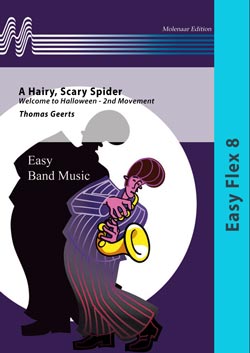 £58.00
£58.00A Hairy, Scary Spider - Thomas Geerts
A Hairy Scary Spider is the second part of the musical theatre piece Welcome to Halloween. This piece can be ordered separately or as part of the complete set. The piece describes a day in the life of a hairy, scary spider. In the beginning you aren't really sure what you are looking at. Is it a ball of wool or a big shadow? It turns out to be a spider sitting happily in his web. At a certain point while the whole band is watching him carefully, he jumps which leads to an inevitable scream.
Estimated dispatch 10-14 working days
-
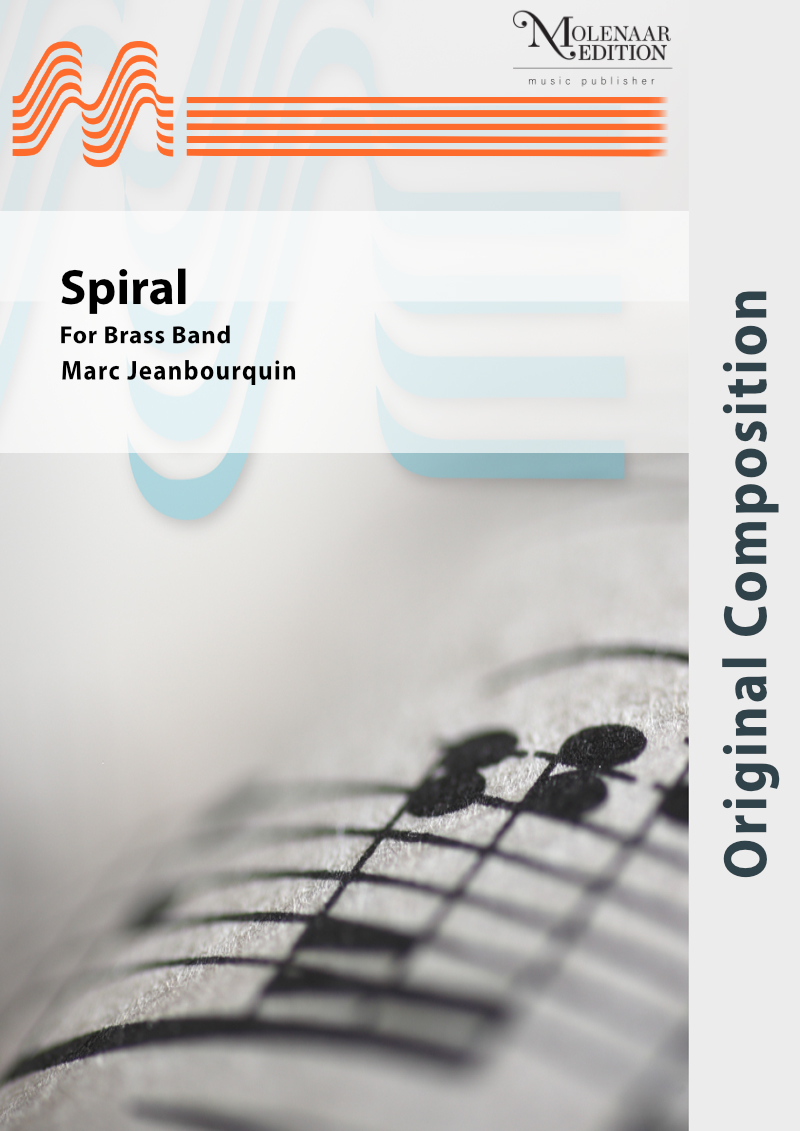 £66.00
£66.00Spiral - Marc Jeanbourquin
Marc Jeanbourquin composed 'Spiral' during a music camp, for himself and 9 other fellow musicians. Due to the success of this piece, some years later, he has taken the main theme and developed it, with a kind of tribute to Camille Saint-Saens, one of his favourite composers. The constant changes between the minor and major keys, and between the often changing 2 and 3 feeling, with the occasional 2/4 bar thrown in, do not disrupt the flow of the piece in the slightest; in fact it is what has inspired the title. A percussion interlude, which is broken up by the unregularly occurring meter, brings the piece to a restatement of the original theme, which then ends in a large crescendo. Spiral is perfectly suited to either the opening or the close of any concert.
Estimated dispatch 10-14 working days
-
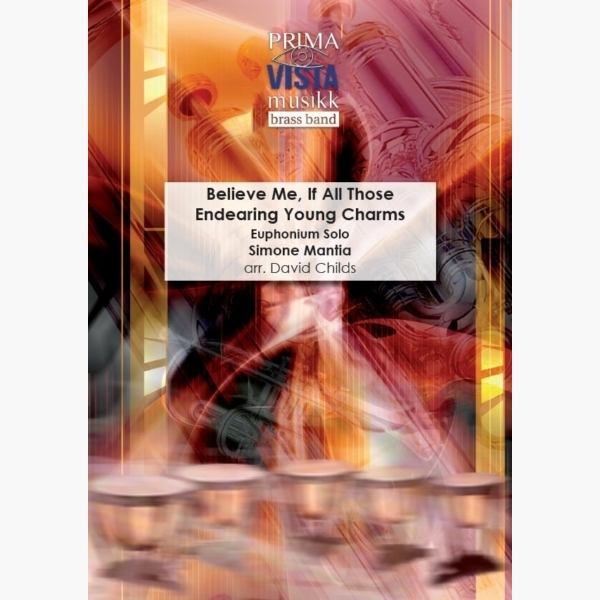 £24.95
£24.95Believe Me, If All Those Endearing Young Charms - Simone Mantia - David Childs
The tune and lyrics of most folk songs we are familiar with today are usually the collaboration of several composers and lyricists over, what can sometimes be hundreds of years. Endearing Young Charms is no exception to this rule with...
Estimated dispatch 5-7 working days
-
£34.95
NEW BORN BABE, The (Brass Band Set) - Bruce Broughton
The chorale which forms the basis of this prelude dates from the sixteenth century and was used by J.S.Bach in his Cantata No.122, 'Das neugeborne Kinderlein'. On his score Bruce Broughton includes a translation by R. Rutledge of the words; 'There comes the true jubilee, what are we eternally lamenting? Look alive! It is a time for singing, for the Christ-child exorcises all sorrow'.
Estimated dispatch 7-14 working days
-
£24.95
SOMEONE CARES (Cornet Solo with Brass Band Set) - John Larsson - Ray Steadman-Allen
In the mid-1960s, then captains John Larsson and John Gowans (both of whom were later to become Generals of The Salvation Army) combined to write the first in what became a string of Salvation Army musicals, entitled 'Take-over Bid'. This solo features perhaps the most memorable song from that first musical, now arranged as a beautiful slow melody.
Estimated dispatch 7-14 working days
-
 £57.50
£57.50Barbie's World - Michael Brown
From the blockbuster movie Barbie comes the equally sensational soundtrack album featuring an all-star lineup of performers and songwriters. This upbeat and entertaining medley for brass band includes: Barbie Dreams Barbie Girl What Was I Made For? Dance the Night.
Estimated dispatch 5-14 working days



